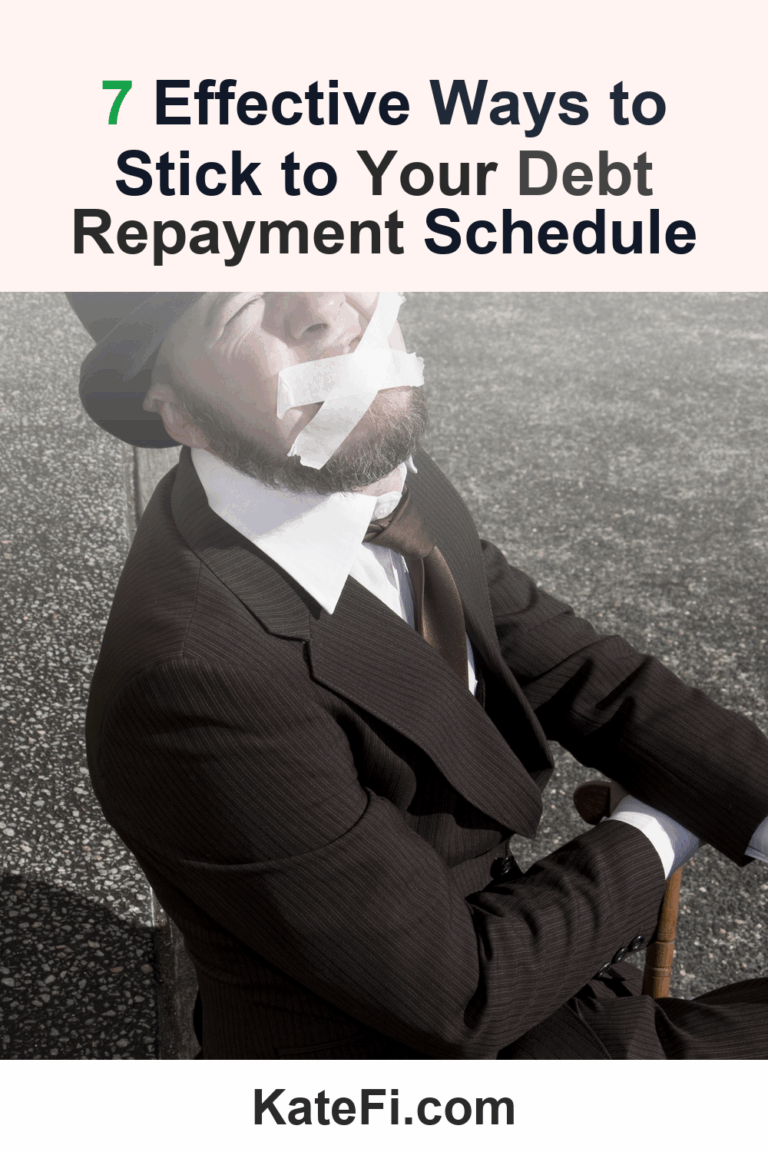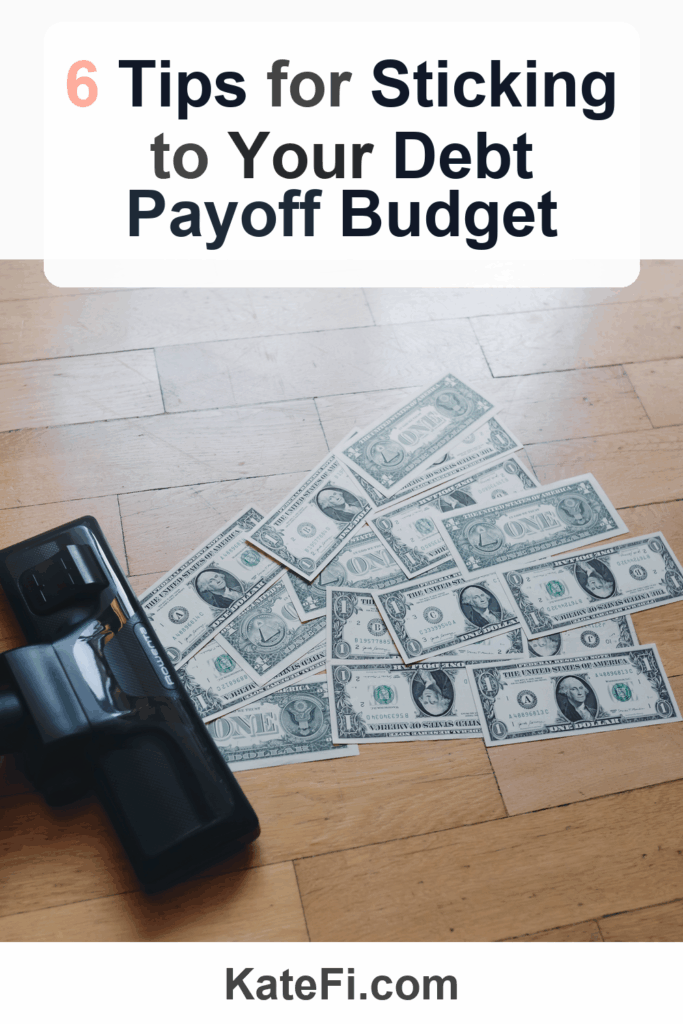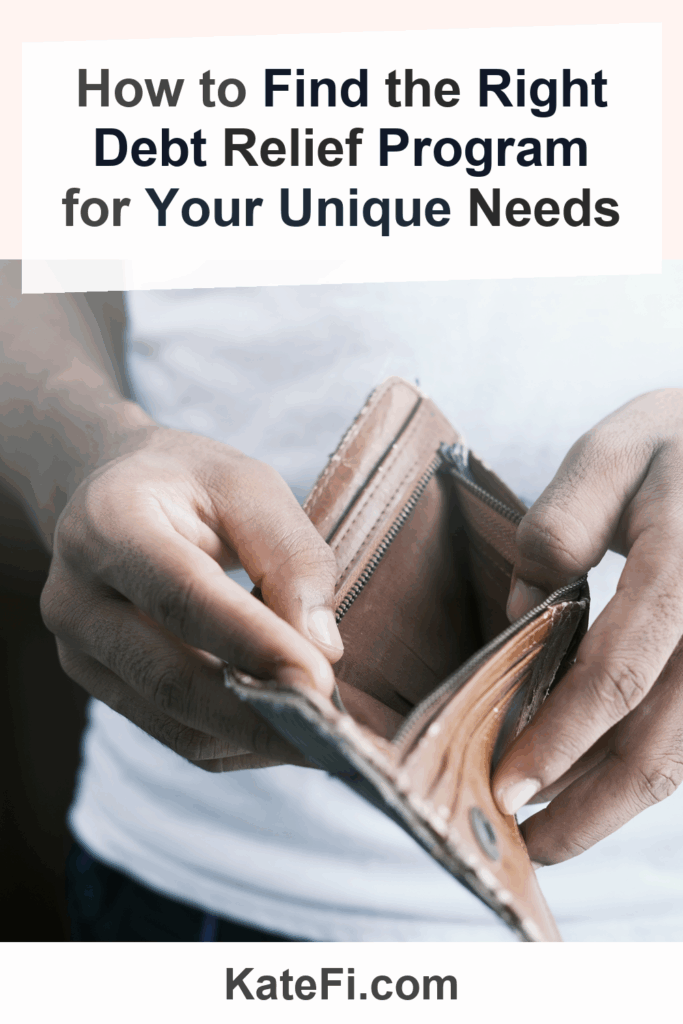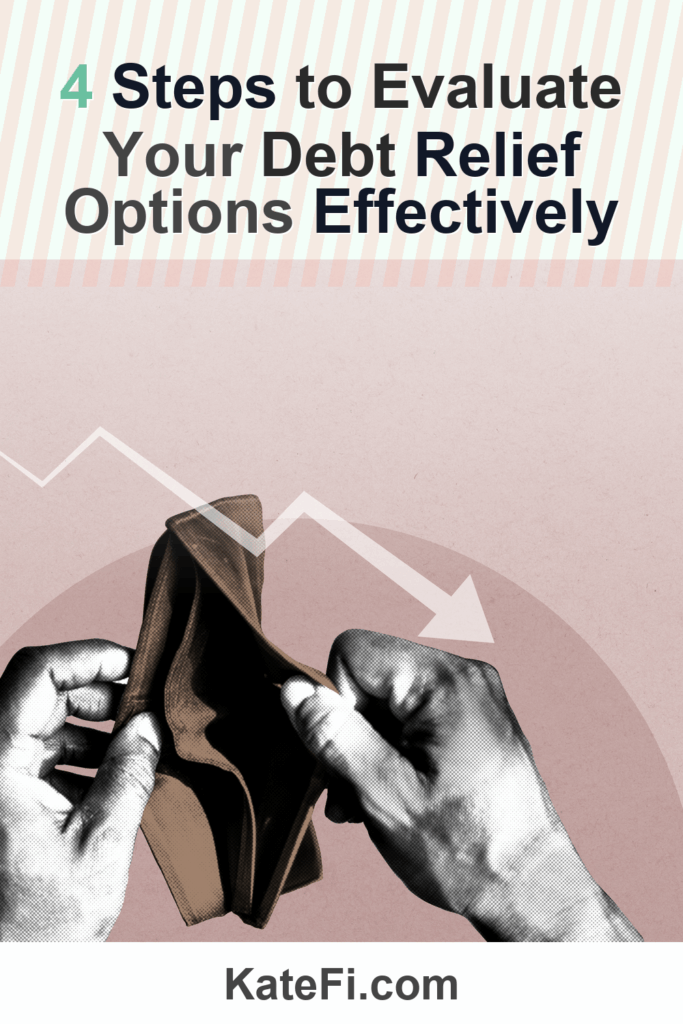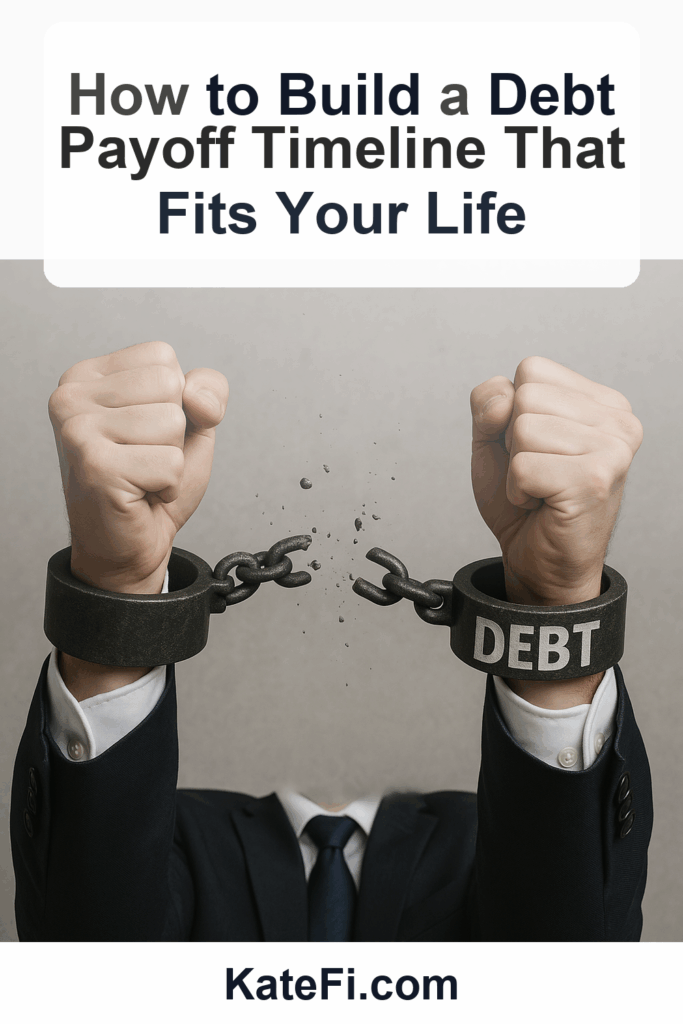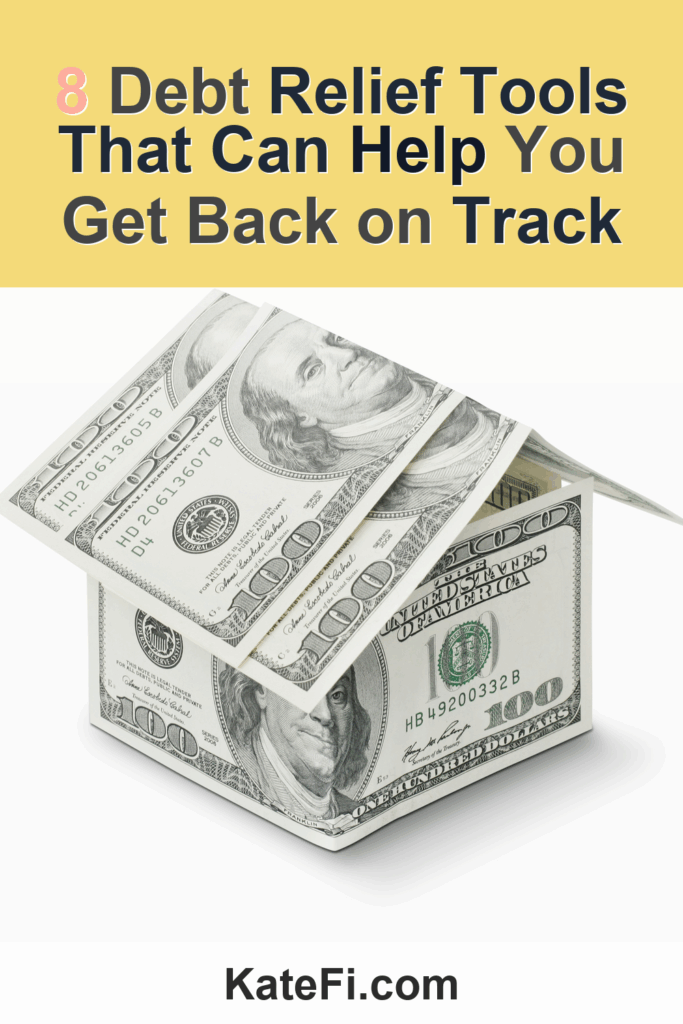7 Effective Ways to Stick to Your Debt Repayment Schedule
Debt can feel overwhelming, and if you’ve found yourself in a situation where repayments are looming over your head, you’re not alone. Millions of Americans grapple with debt every day, trying to balance payments while keeping their financial life afloat. It’s not just about making payments; it’s about sticking to a strategy that works and getting out of the cycle of debt for good. In this post, we’ll explore a case study that highlights effective methods for sticking to your debt repayment schedule, what to ask a counselor, and when it makes sense to consult a bankruptcy attorney.
Love our content? Show your support by following us — pretty please!🥺
FOLLOW ON PINTEREST
Hi! I’m Kate, the face behind KateFi.com—a blog all about making life easier and more affordable.
The Case of Mark: A Real-Life Debt Repayment Journey
👉 Start Your Free Debt Relief Review
Not available in IL, KS, OR, TN, UT, WV.
Mark was a typical 30-something guy living in a bustling city. He had a decent job, a cozy apartment, and a close-knit group of friends. Yet, he felt trapped by his debt. Student loans, credit card bills, and a car loan had him struggling to make ends meet. Despite working hard, he found himself in a constant cycle of borrowing just to pay off previous loans.
Mark knew he needed help but didn’t know where to turn. After months of stress, he took the brave step to consult a financial counselor, hoping for guidance. It turned out to be one of the best decisions he ever made.
Through their sessions, Mark learned seven effective strategies to help him stick to his debt repayment schedule, which not only empowered him to take control of his finances but also provided him with crucial insights into his financial habits. Here’s what he learned:
1. Create a Detailed Budget
What You’ll Learn on the Call
- Estimated timeline and monthly payment range
- How credit may be affected in the short term
- What documents to gather to move faster
Not available in IL, KS, OR, TN, UT, WV.
The first step Mark took was creating a detailed budget that mapped out all his monthly expenses, income, and debt payments. This budgeting process gave him a clearer view of his financial situation.
Lesson Learned: Make budgeting a priority. Use budgeting apps or simple spreadsheets to track every dollar you spend. Don’t forget to include irregular expenses, such as annual subscriptions or car maintenance.
2. Set Realistic Goals
Lower Your Unsecured Debt
If you have $5,000+ in credit card or personal loan debt, a free consult can review options like settlement or hardship plans.
- One-on-one call to review your debts and goals
- See potential monthly payment reductions
- No obligation to enroll
Not available in IL, KS, OR, TN, UT, WV.
Mark realized that he had been overly ambitious with his debt repayment goals. After discussing this with his counselor, he adjusted his strategy. Instead of aiming to pay off his debt in one year, he set a more realistic three-year timeline.
Lesson Learned: Goals should be achievable. Break your debts down into smaller, manageable chunks and celebrate each milestone, whether it’s paying off a credit card or reducing your overall debt by a certain percentage.
✅ See If You Qualify for Debt Relief
3. Automate Payments
Understand pros/cons of settlement vs consolidation vs DMP for your exact mix of debts.
Not available in IL, KS, OR, TN, UT, WV.
One of the smartest moves Mark made was automating his payments. By setting up automatic payments for his bills, he eliminated the worry of forgetting due dates and incurring late fees.
Lesson Learned: Automate wherever possible. Many banks allow you to schedule payments in advance. This helps you maintain discipline while reducing the mental burden of managing multiple deadlines.
4. Build an Emergency Fund
Mark learned that having an emergency fund would help prevent him from relying on credit cards when unexpected expenses arose. He started small, aiming to save $500, then gradually worked toward having three to six months’ worth of expenses saved.
Lesson Learned: Even while repaying debt, set aside a little money for emergencies. This cushion allows you to deal with financial surprises without derailing your repayment schedule.
5. Seek Support
Mark found it helpful to engage with a community of individuals going through similar experiences. He joined online forums and attended local support groups, which helped him stay motivated and accountable.
Lesson Learned: Surround yourself with supportive people. Share your goals with friends or family members who can provide encouragement and accountability along your debt repayment journey.
6. Monitor Your Progress
Every month, Mark reviewed his budget and debt repayment progress. He kept track of his spending habits and celebrated small victories, like paying off a credit card.
Lesson Learned: Regularly monitor your progress. Set a specific time each month to review your financial situation. This habit not only helps you stay on track but also allows you to make adjustments as needed.
7. Consult a Financial Counselor
Finally, Mark realized the immense value of working with a financial counselor. Their expertise helped him understand debt relief options he hadn’t previously considered, including potential bankruptcy, when it might make sense, and how it could impact his financial future.
Lesson Learned: If you’re feeling overwhelmed, reach out for help. A financial counselor can provide personalized advice and help you navigate your options. Don’t hesitate to get a free consultation to explore what’s best for your unique situation.
Understanding Bankruptcy: When It Makes Sense
For some, bankruptcy may feel like a failure, but it can also be a fresh start. It’s a legal process that can provide relief from overwhelming debt and offer a way to get back on your feet. Here’s when you should consider it:
- High, Unmanageable Debt: If your debts are far greater than your income and other debt relief options seem unattainable.
- Risk of Foreclosure or Eviction: If you’re at risk of losing your home or facing severe collections.
- No Realistic Way to Pay Off Debt: When your debt is simply too high relative to your income and expenses, it may be time to consider bankruptcy as a viable option.
If you think bankruptcy might be the solution for you, gather relevant documents, such as income statements, tax returns, and a list of debts, to facilitate a faster review.
Credit Impact: What to Expect
Understanding how debt relief can impact your credit score is crucial. While your credit may take a hit initially, the long-term benefits of getting out of debt and establishing better financial habits can lead to improved credit health over time.
Before making any decisions, consult with a professional to discuss the potential impacts on your credit score and what steps you can take to rebuild after bankruptcy or other debt relief options.
Practical Checklist for Your Debt Repayment Journey
As you embark on your debt repayment journey, keep this handy checklist in mind:
- Create a Detailed Budget
- Track income and expenses.
- Identify non-essential spending to cut back on.
- Set Realistic Goals
- Break down larger debts into manageable portions.
- Celebrate small victories.
- Automate Payments
- Set up autopay for recurring bills.
- Use reminders for manual payments.
- Build an Emergency Fund
- Aim for small, manageable savings goals.
- Gradually increase your savings target.
- Seek Support
- Join online forums or local groups.
- Share your goals with friends or family.
- Monitor Your Progress
- Schedule monthly budget reviews.
- Adjust your strategy as necessary.
- Consult a Financial Counselor
- Explore debt relief options.
- Get a free consultation to assess your unique situation.
✅ See If You Qualify for Debt Relief
Important: This content is for education only—not legal, tax, or financial advice. Results and eligible programs vary by situation and state. Fees apply if you enroll and complete a program. Debt relief can affect credit; missed payments may lead to collections/lawsuits. Not available in IL, KS, OR, TN, UT, WV.
Sticking to a debt repayment schedule is not just about discipline; it’s also about the right strategies, community support, and expert advice. With Mark’s story as a guide, you can develop a roadmap that works for your financial situation. Don’t hesitate to reach out for a consultation to review your options—taking that step could change your financial future for the better.

